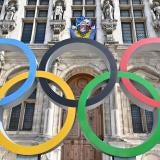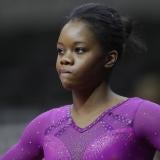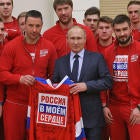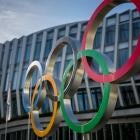
It might be time to start questioning whether Russia will actually be banned from the 2018 Winter Olympics at all.
The International Olympic Committee has stood firm with its December ruling, which barred representation from the country at February's PyeongChang Games after a year-plus investigation of an "unprecedented," state-backed doping program. But the international Court of Arbitration for Sport, hearing appeals from more than 40 different Russian athletes, announced Thursday, days before the Opening Ceremony, that it has overturned lifetime Olympics bans for 28 of those competitors.
The court ruled that "there was insufficient evidence that the athletes -- including some medal winners -- breached anti-doping regulations at the 2014 Olympics in Sochi," as reported by the New York Times. In doing so, it wiped away the indefinite suspensions issued by the IOC to the 28 athletes and, as Russian deputy prime minister Vitaly Mutko told the Times, set the stage for another legal fight that could allow all but 11 of those same athletes to compete immediately, in Pyeongchang.
The IOC, reports indicate, believes it has the final say over whether any suspended athletes are eligible to participate in the Olympic Games, but Mutko suggested the reinstated Russian athletes would have support against any further IOC rulings.
In any event, Russia isn't entering the 2018 Winter Olympics short-handed. On paper, they are not permitted to receive credit for any medals won, and their eligible athletes are required to compete in neutral uniforms, but with 169 athletes already cleared to compete in Pyeongchang and another 15-plus potentially on the way thanks to the appeals ruling, they may very well send more Olympic athletes to South Korea than the contingent they sent to Vancouver for the 2010 Winter Olympics.





















